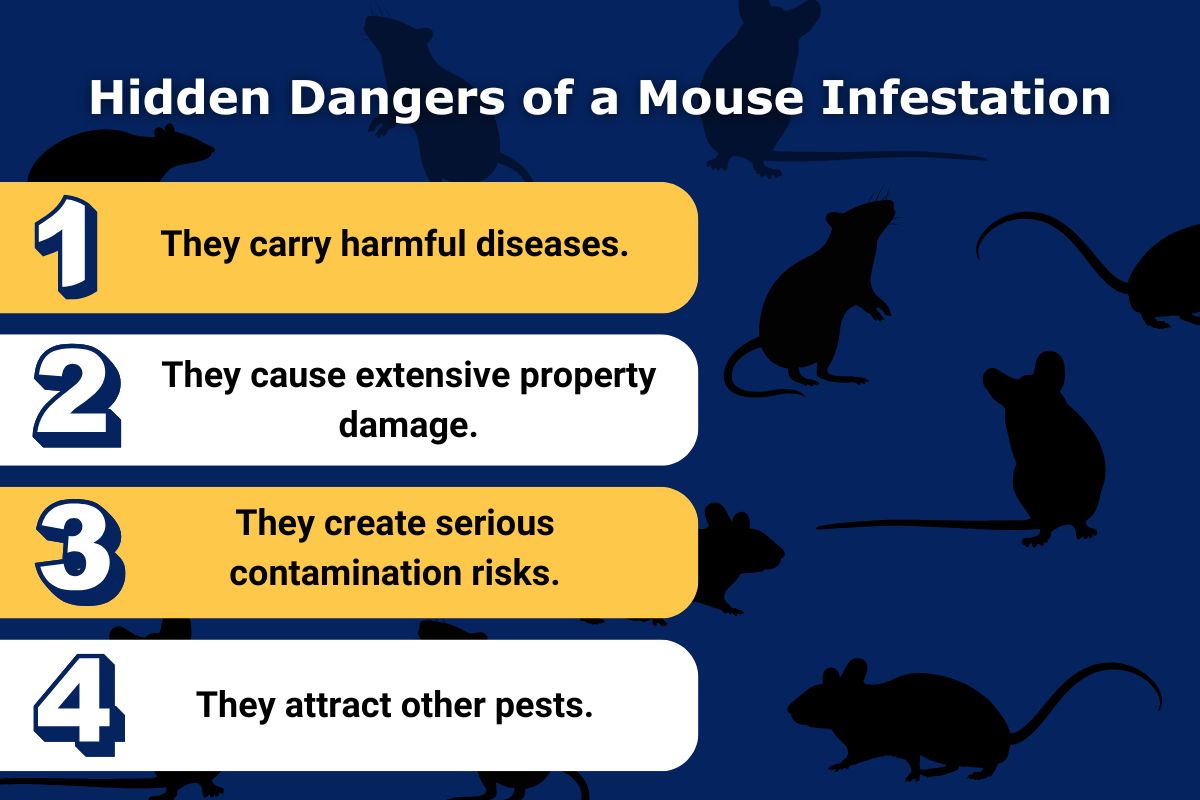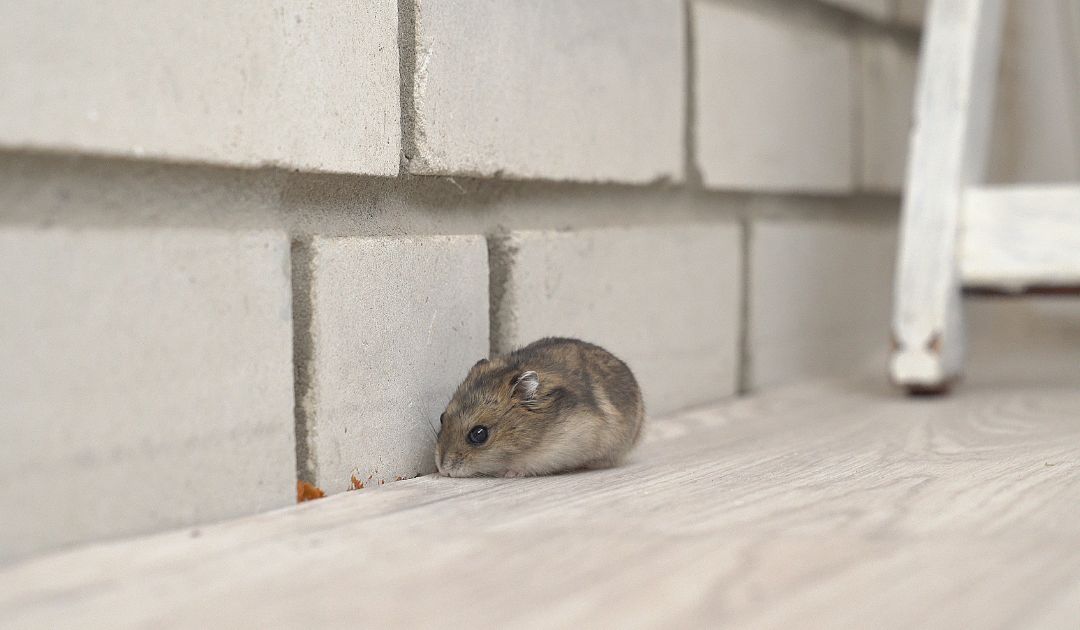As temperatures dip in late December, the warmth and shelter of your White House home becomes an inviting haven – not just for you, but for unwelcome guests like mice. These furry little intruders might seem harmless at first glance, but they can cause far more harm than you might think. From spreading dangerous diseases to damaging your property, having mice in your home is more than just a nuisance – it’s a serious threat to your health and safety.
If you’re concerned about a mouse infestation, contact the pros here at Smash Pest Control. For expert rodent control services in middle Tennessee, trust our experts to restore your peace of mind and reclaim your home. Call 615-551-4029 or reach out online.

What Makes Mice Dangerous?
Mice might look small and non-threatening, but these rodents can wreak havoc in ways that go far beyond their size. Here’s why mice in your home are more dangerous than you might realize:
- Health Risks: Mice are known carriers of harmful diseases such as hantavirus, leptospirosis, and salmonella. These illnesses can spread through contact with mouse droppings, urine, or saliva, or by consuming contaminated food. Airborne particles from dried droppings can also pose respiratory hazards.
- Property Damage: Mice have an incessant need to chew due to their ever-growing teeth. They’ll gnaw on everything from wood and insulation to electrical wiring, increasing the risk of structural damage and even fire hazards. Their nesting habits can further damage insulation and drywall, leading to costly repairs.
- Contamination of Food & Other Surfaces: Mice are scavengers that contaminate far more food than they consume. They’ll leave droppings, urine, and hair in your pantry and throughout your kitchen, making food unsafe to eat. Because they skitter across surfaces that can harbor bacteria, the risk for cross-contamination during meal preparation is very high.
- Attracting Other Pests: Mice don’t come alone – they can carry fleas, mites, and ticks into your home, creating additional pest infestations. They can also attract predatory pests, such as snakes, which are drawn to homes with rodent activity.
How Quickly Can Mice Reproduce in the Home?
One of the most alarming facts about mice is their rapid reproduction rate. A single female mouse can have up to 10 litters per year, with each litter containing five to 12 pups. And then those pups can start reproducing themselves within six weeks.
This means that what starts as a small problem in December could escalate into a full-blown infestation by spring. Mice may have short lifespans, but because they multiply exponentially, the problem can get worse very quickly, making early detection and intervention crucial.
What Are the Signs of a Mouse Infestation?
Knowing the warning signs of a mouse infestation can help you take swift action before the problem spirals out of control. Look for the following:
- Droppings: Small, dark, pellet-shaped droppings near food sources, in cabinets, or along walls.
- Gnaw Marks: Signs of chewing on wood, plastic, or food packaging.
- Tracks & Smudges: Greasy trails or tiny footprints along baseboards and walls where mice travel.
- Nests: Shredded paper, fabric, or insulation in hidden areas like cabinets, attics, or crawl spaces.
- Noises: Scratching, squeaking, or scampering sounds in the walls or ceilings, especially at night.
- Foul Odor: A musty or ammonia-like smell caused by mouse urine, especially in enclosed spaces.
If you notice any of these signs, it’s vital to act quickly to prevent further infestation.
How Can I Prevent Mice from Entering My Home?
Keeping mice out of your home requires proactive measures, especially during the colder months when they’re actively seeking shelter. Here are some steps you can take to discourage rodents from entering your home:
- Seal Entry Points: Mice can squeeze through holes as small as a dime. Inspect your home’s exterior for cracks, gaps, or openings around doors, windows, and utility pipes. Seal these entry points with steel wool, caulk, or other rodent-proof materials to discourage animal entry.
- Keep Food Secure: Store pantry items in airtight containers, and clean up crumbs or spills promptly. Take the trash out regularly and ensure bins have tight-fitting lids to eliminate intriguing food sources.
- Declutter Your Home: Reduce potential hiding places by keeping your home organized and free of clutter, particularly in basements, attics, and garages. Regularly inspect storage areas for signs of rodent activity.
- Maintain Your Yard: Trim back shrubs and tree branches near your home, and keep firewood stacks at least 20 feet away from your house. Removing outdoor debris minimizes nesting sites and reduces available materials with which to build nests.
However, the only fool-proof method of preventing a mouse infestation – and eliminating them permanently if they do invade your home – is to call in a licensed pest professional. At Smash Pest, we offer comprehensive pest management solutions to ensure your home is truly mouse-free. Our dedicated team of experts specializes in identifying and eliminating rodent infestations, as well as implementing preventative measures to protect your home year-round.
Stress Less & Call Smash Pest for Mice Control Services
Mice may seem like a small nuisance, but their potential for causing health issues, property damage, and contamination is significant. If you suspect a mouse infestation or want to fortify your home against future invasions, don’t wait – especially during this active winter season.
Call Smash Pest Control today to schedule a consultation and keep your White House home safer, cleaner, and rodent-free. Your peace of mind is just a phone call away!


Recent Comments